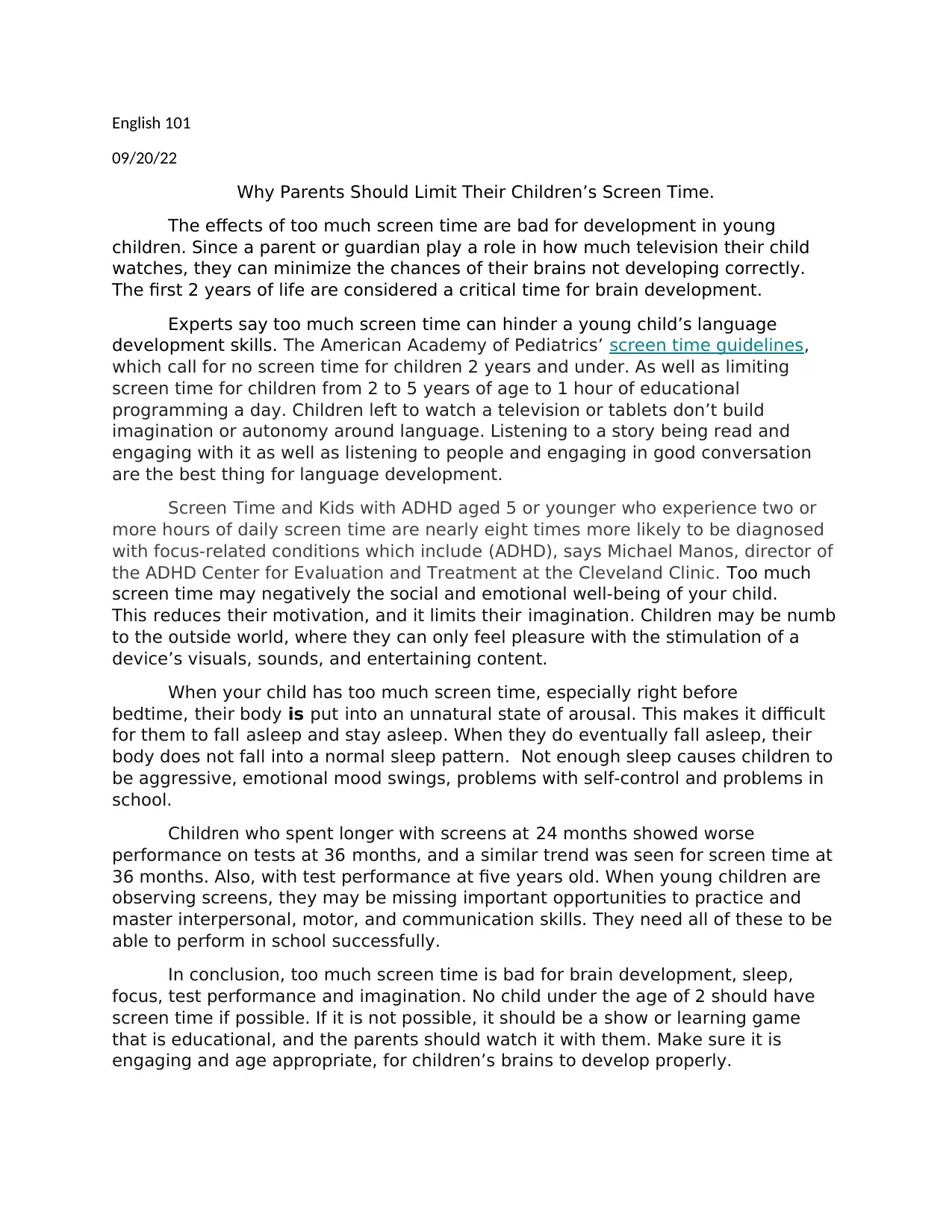English 101 Essay: The Detrimental Effects of Screen Time on Children
VerifiedAdded on 2023/06/04
|1
|534
|303
Essay
AI Summary
This essay, prepared for English 101, examines the negative impacts of excessive screen time on children's development. It highlights the critical period of brain development in the first two years of life and how too much screen time can hinder language acquisition. The essay references the American Academy of Pediatrics' guidelines and discusses the link between screen time and ADHD, emphasizing the increased likelihood of focus-related conditions in children with high screen exposure. It further explores the detrimental effects on social-emotional well-being, imagination, and sleep patterns, leading to potential behavioral and academic problems. The essay concludes by advocating for limited or no screen time for young children, especially those under two years old, and suggests that if screen time is unavoidable, it should involve educational content and parental engagement to support healthy brain development.






![[object Object]](/_next/static/media/star-bottom.7253800d.svg)